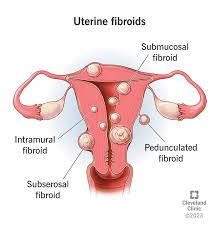A groundbreaking meta-analysis has unveiled that even a brief 10-minute exposure to nature can significantly benefit adults diagnosed with mental illness. This comprehensive study, published in the peer-reviewed journal Ecopsychology, synthesizes 30 years of research, demonstrating the profound positive effects of nature on mental health.
Nature’s Role in Mental Health
Spending time in nature has been repeatedly shown to reduce stress, enhance cognitive function, and uplift mood. The recent meta-analysis scrutinized the social, mental, and physical health impacts of nature exposure, including urban green spaces, on adults with mental health conditions.
Meta-Analysis of 30 Years of Research
Joanna Bettmann, a professor at the University of Utah College of Social Work and lead author of the study, emphasized the often-overlooked therapeutic potential of nature in mental health care. “We know nature plays an important role in human health, but behavioral health and healthcare providers often neglect to think about it as an intervention,” Bettmann stated. The research team reviewed 14,168 studies, narrowing them down to 45 studies involving 1,492 participants with diagnosed mental illnesses.
Varying Durations and Patterns of Nature Exposure
The duration of nature exposure in the studies varied, with some participants spending as little as 10 minutes in a city park, while others engaged in multi-day wilderness experiences. The results indicated that all types of nature exposure, whether short and frequent or long and immersive, produced positive mental health outcomes.
“Ten minutes in urban nature is far less intimidating, expensive, and time-consuming for people who do not have the time, resources, interest, community support, or equipment to venture into the wilderness for days or weeks,” the authors noted.
Positive Effects of Different Outdoor Spaces
The analysis highlighted the significant mental health benefits of various outdoor environments. Activities such as camping, farming, and gardening, as well as time spent near water bodies like rivers, lakes, and oceans, showed the greatest positive effects. Urban green spaces, mountains, and forests also contributed to improved mental well-being.
“All of these different types of outdoor spaces delivered positive results, which underscores the importance of preserving green spaces in our natural and built environments,” said Bettmann.
Bridging the Gap Between Nature and Health
The study’s coauthors, including Scott Couch and Dorothy Schmalz from the University of Utah’s Department of Parks, Recreation & Tourism, contributed to this pivotal research. The project received funding from Nature and Human Health Utah, a nonprofit dedicated to exploring the connection between nature and health.
Schmalz, a professor and chair of the Department of Parks, Recreation & Tourism, praised Bettmann’s work in synthesizing the diverse research findings. “The relationship between nature and mental health is all over the place. The interventions vary from study to study, and the outcomes therefore are also all over the place,” Schmalz explained. “The work that Joanna did here in bringing it all together and culling through it and really figuring out what the overall message seems to be is an incredibly valuable contribution to understanding what this connection is.”
Applying Findings in Utah’s Natural Environment
Utah, with its abundant natural resources, presents an ideal setting to apply these findings. “Here we are surrounded by all these extraordinary natural resources,” Schmalz said. “Having this kind of knowledge to work nature into behavioral and mental health can help make Utah a place that’s known for taking advantage of the outdoors to be healthy mentally, physically, and emotionally.”
This study underscores the critical need to preserve and promote access to green spaces as a vital component of mental health care, advocating for nature-based interventions as an accessible and effective strategy for improving mental well-being.
Reference: “Nature Exposure, Even as Little as 10 Minutes, is Likely to Yield Short-Term Benefits for Adults with Mental Illness: A Meta-Analysis” by Joanna E. Bettmann, Elizabeth Speelman, Ellison Blumenthal, Scott Couch, and Dorothy L. Schmalz, 8 July 2024, Ecopsychology. DOI: 10.1089/eco.2023.0063.












